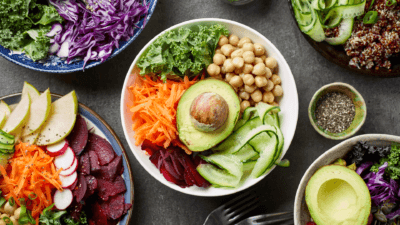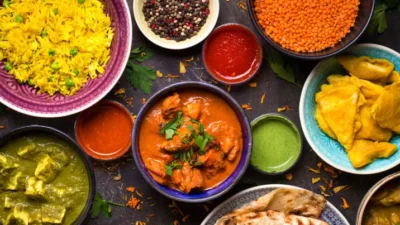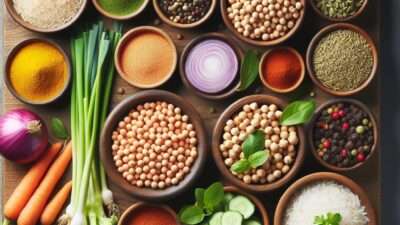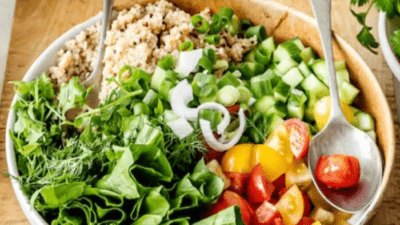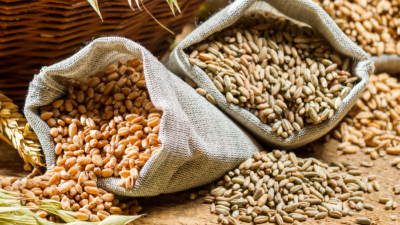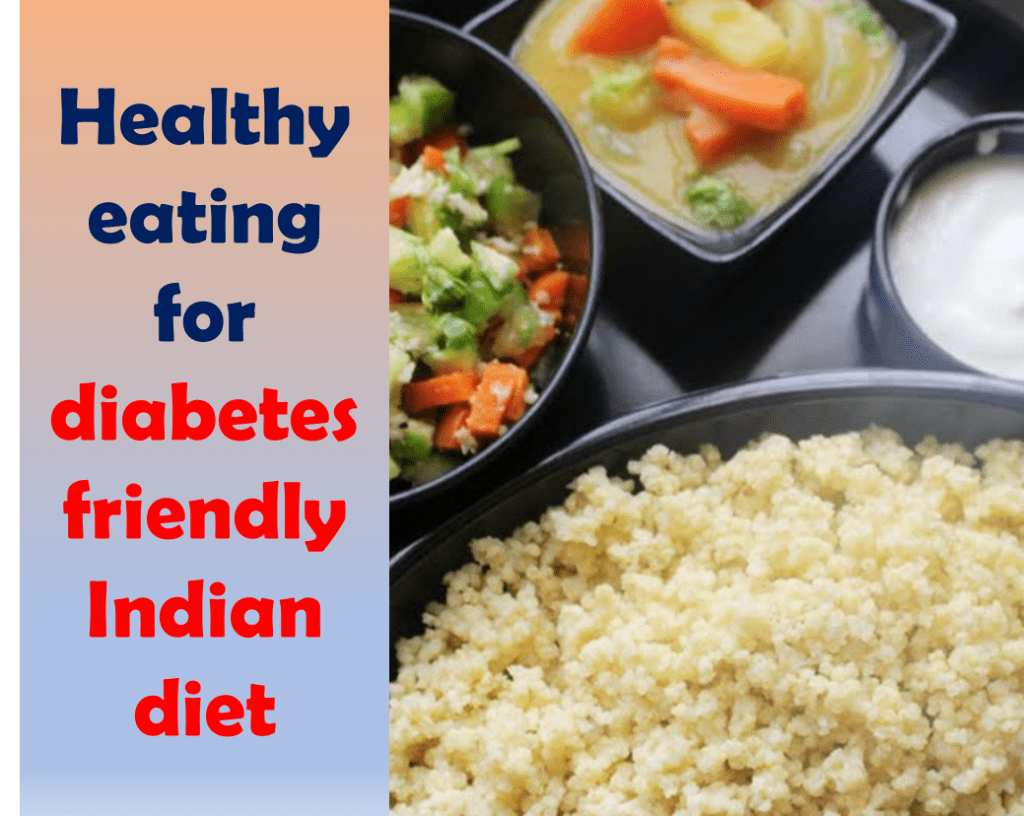
Living with diabetes doesn’t mean giving up the vibrant and diverse flavors of Indian cuisine. In fact, a well-balanced and mindful approach to your diet can help you manage diabetes effectively while still savoring the rich tastes that Indian food has to offer. Here are some tailored diabetes diet tips for the Indian audience that focus on maintaining blood sugar levels without compromising on taste.
- Embrace Whole Grains: Replace refined grains with whole grains like brown rice, quinoa, and whole wheat. These options have a lower glycemic index, which means they cause a slower rise in blood sugar levels. Whole grains also provide essential nutrients and fiber, promoting better digestion and helping to control blood sugar levels.
- Load Up on Fiber: Fiber is a crucial component in managing diabetes. Include plenty of fiber-rich foods such as vegetables, lentils, legumes, and fruits in your diet. Fiber helps regulate blood sugar levels and improves overall gut health. Opt for a variety of colorful vegetables to ensure a diverse range of nutrients.
- Mindful Carbohydrate Consumption: Carbohydrates are an integral part of Indian meals, but it’s essential to choose wisely. Opt for complex carbohydrates found in whole grains, legumes, and vegetables over simple carbohydrates like refined flour and sugar. Balancing your carbohydrate intake throughout the day can help maintain steady blood sugar levels.
- Choose Healthy Fats: Include sources of healthy fats like olive oil, nuts, seeds, and avocados in your diet. These fats can help improve insulin sensitivity and reduce inflammation. While cooking Indian dishes, try to minimize the use of saturated and trans fats, commonly found in fried and processed foods.
- Opt for Lean Proteins: Protein is essential for maintaining muscle mass and keeping you feeling full. Choose lean protein sources such as skinless poultry, fish, tofu, and legumes. Including protein in your meals can help stabilize blood sugar levels and provide sustained energy.
- Control Portion Sizes: Practice portion control to manage calorie intake and prevent spikes in blood sugar. Use smaller plates, and be mindful of your serving sizes, especially when indulging in traditional Indian sweets and snacks. This approach allows you to enjoy your favorite dishes without compromising your diabetes management.
- Spice it Up with Herbs and Spices: Indian cuisine is renowned for its vibrant use of herbs and spices, many of which offer health benefits. Incorporate cinnamon, fenugreek, turmeric, and curry leaves into your meals. These spices not only add flavor but also have anti-inflammatory properties that may assist in managing diabetes.
- Stay Hydrated: Drinking plenty of water is crucial for overall health and can aid in managing blood sugar levels. Opt for herbal teas, but be cautious with sugary beverages. Unsweetened beverages and water should be your primary choices to stay hydrated without adding unnecessary sugars.
Adapting to a diabetes friendly Indian diet is not about deprivation but about making informed choices and finding a balance that works for you. By incorporating whole foods, controlling portion sizes, and being mindful of the glycemic index, you can continue to relish the delicious flavors of Indian cuisine while prioritizing your health and managing diabetes effectively.
- The Importance of Regular Physical Activity: In addition to a balanced diet, regular physical activity is a cornerstone of diabetes management. Incorporate at least 30 minutes of moderate-intensity exercise into your daily routine, such as brisk walking, cycling, or yoga. Engaging in physical activity helps improve insulin sensitivity, making it easier for your body to regulate blood sugar levels. Choose activities that you enjoy, whether it’s dancing to Bollywood tunes or practicing traditional forms of exercise like yoga or martial arts.
- Be Mindful of Traditional Sweets and Snacks: Indian festivals and celebrations often come with an array of tempting sweets and snacks. While it’s okay to indulge occasionally, it’s crucial to be mindful of your choices. Opt for sweets made with natural sweeteners like jaggery or use artificial sweeteners in moderation. Choose roasted snacks over fried ones, and try healthier versions of traditional recipes. For example, prepare sweets using whole wheat flour or millets instead of refined flour.
- Monitor Blood Sugar Levels Regularly: Frequent monitoring of blood sugar levels is essential for understanding how different foods affect your body. Keep a log of your meals, physical activity, and blood sugar readings to identify patterns and make necessary adjustments. This proactive approach empowers you to take control of your diabetes management and work collaboratively with your healthcare team to achieve optimal blood sugar control.
- Include Low-Glycemic Fruits: While fruits are a vital part of a balanced diet, it’s essential to choose those with a lower glycemic index. Berries, guava, papaya, and apples are excellent choices as they have a slower impact on blood sugar levels. Limit the consumption of high-glycemic fruits like watermelon and pineapple, and enjoy them in moderation.
- Manage Stress with Mindful Practices: Stress can adversely impact blood sugar levels, so incorporating stress-reducing activities is crucial. Practices like meditation, deep breathing exercises, and mindfulness can help manage stress levels effectively. Traditional Indian practices such as pranayama (controlled breathing) and meditation can be seamlessly integrated into your routine to promote emotional well-being.
- Customize Your Diet to Personal Preferences: India is known for its diverse regional cuisines, and customization is key when tailoring a diabetes-friendly diet. Consider the culinary traditions of your region and adapt recipes accordingly. For instance, if you’re from the South, focus on incorporating more of the region’s nutritious staples like curry leaves, tamarind, and coconut into your meals.
- Collaborate with a Registered Dietitian: Individualized guidance from a registered dietitian is invaluable in managing diabetes. A professional can help create a personalized meal plan, taking into account your cultural preferences, lifestyle, and specific health needs. Regular follow-ups with a dietitian can ensure that your diet remains aligned with your health goals and provides the necessary flexibility to enjoy occasional treats.
- Stay Informed About Diabetes-Friendly Cooking Techniques: The way you prepare your meals can significantly impact their nutritional value. Explore healthier cooking methods like grilling, baking, steaming, or sautéing with minimal oil. Experiment with herbs and spices to enhance flavor without relying on excessive salt or sugar. By mastering diabetes-friendly cooking techniques, you can maintain the taste and nutritional value of your favorite dishes.
- Social Support and Community Engagement: Living with diabetes can sometimes feel isolating, but engaging with a supportive community can make a significant difference. Join local or online diabetes support groups where you can share experiences, exchange tips, and gain insights from others facing similar challenges. Building a strong support network can provide emotional encouragement and practical advice to navigate the complexities of managing diabetes.
Successfully managing diabetes in the context of Indian cuisine involves a holistic approach that goes beyond dietary adjustments. By incorporating these additional tips, you can create a comprehensive lifestyle strategy that includes physical activity, stress management, and community support. Remember, diabetes management is a journey, and with the right tools and support, you can lead a fulfilling life while savoring the diverse and delicious flavors of Indian cuisine. Always consult with your healthcare team for personalized advice tailored to your unique needs and circumstances.
References:
- “Managing diabetes”. (2016) National Institute of Diabetes and Digestive and Kidney Diseases, US National Institutes of Health.
- Toumpanakis A, Turnbull T, Alba-Barba I (2018). “Effectiveness of plant-based diets in promoting well-being in the management of type 2 diabetes: a systematic review”. BMJ Open Diabetes Research & Care.

